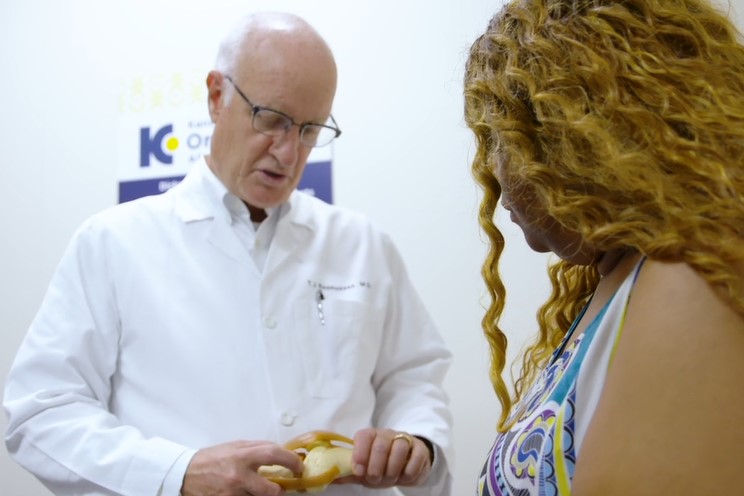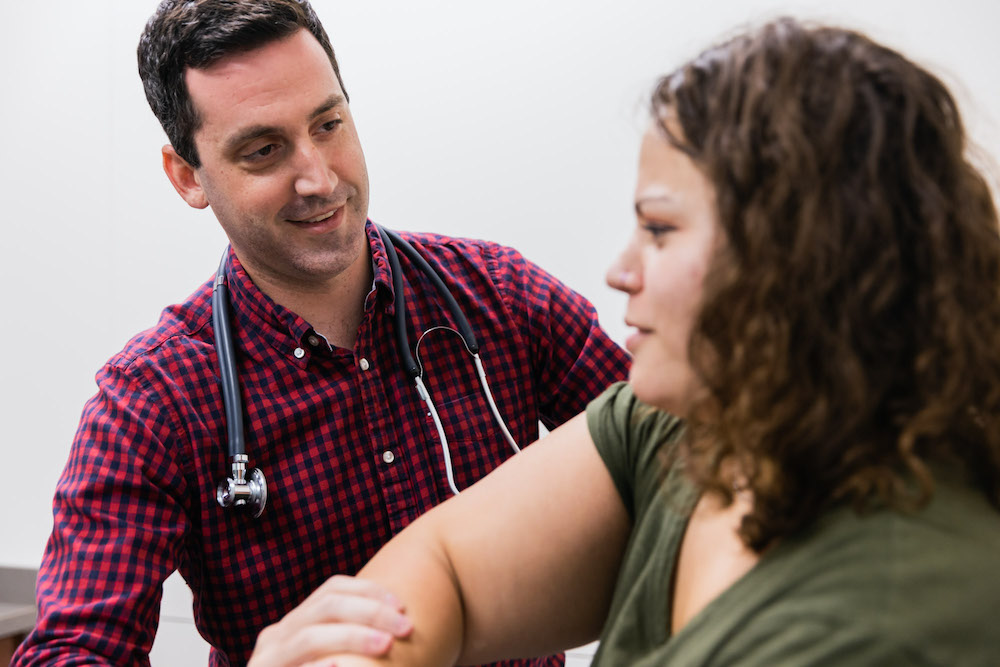
We continue our physician blog series with an informal Q&A with Stanley Bowling, M.D. Dr. Bowling is a board-certified orthopedic surgeon who has been with Dickson-Diveley Orthopaedics for 17 years.
Dr. Bowling, please tell our readers a little about your academic and professional background.
After earning my medical degree from the University of Kansas School of Medicine, I completed an internship and residency in orthopedic surgery at Creighton University/Nebraska Health Foundation.
Today, I am certified by the American Board of Orthopaedic Surgery. I am also a Clinical Assistant Professor for the Department of Orthopaedic Surgery at the University of Missouri-Kansas City School of Medicine, a Courtesy Staff Physician at Truman Medical Center, and an Attending Physician at Kansas City Orthopaedic Institute and Saint Luke’s Health System. I’ve held all those positions since 1999, which is the same year I joined Dickson-Diveley Orthopaedics.
Why did you decide to pursue a career in orthopedic surgery?
I have always been very active and passionate about taking care of injured people. As I learned more about orthopedic surgery, I became interested in the opportunity to help patients improve their overall quality of life through orthopedic care. One of the most rewarding things about being an orthopedic surgeon is helping patients get back to their daily activities—whether they have experienced an athletic injury, a work-related injury or another type of orthopedic trauma.
As an orthopedic surgeon, what are your subspecialized areas of expertise?
I specialize in care and treatment for fractures, orthopedic trauma injuries and other conditions or injuries related to the foot, ankle, shoulder and knee. Some of the most common injuries I treat are proximal humorous fractures (broken shoulders) and Achilles tendon ruptures.
I also specialize in sports medicine. As an avid tennis player, I am familiar with the physical demands of living an active lifestyle and enjoy helping athletes return to their field of competition safely and efficiently. Like orthopedic trauma injuries, sports-related injuries require early medical intervention to avoid permanent damage and loss of function. It’s my job to make sure athletes are completely healed before returning to their sports.
Do you also treat workers compensation patients?
Yes, I have a great deal of experience diagnosing, evaluating and treating work-related injuries. Work-related accidents—such as being struck by an object or falling from an elevated space—can cause serious orthopedic injuries, including broken bones and fractured or dislocated joints. These injuries often require post-trauma reconstructive surgery to restore or optimize function.
Tell us more about your approach to treating patients.
The human body has an amazing ability to heal itself, and there are times when orthopedic surgery may not be appropriate. Therefore, I tend to be a little more conservative when dealing with orthopedic trauma. I use proper judgment to determine when to operate, and I may refer patients to physical therapists and/or interventional physiatrists if I do not feel surgery is necessary.
Do you coordinate care with other healthcare providers—if so, who?
In addition to physical therapists and interventional physiatrists, I often work with primary care physicians who refer patients to me when surgery is necessary. I also coordinate care with case managers and adjusters to ensure patients return to their jobs as quickly and efficiently as possible after a work-related injury.
If you are a patient, referring physician, case manager or caregiver in need of more in-depth information about Dr. Bowling or the procedures he performs, please contact Dickson-Diveley Orthopaedics.


